Conversations that count

If you’ve met me, you’ll know I love a good chin wag. I’ve previously listed this under “good communication skills” but often get branded as "chatty.”
So, it felt almost serendipitous when I was put in charge of industry engagement for the Department of Levelling Up, Housing and Communities (DLUHC) ‘Modern Methods of Construction (MMC) Standardisation Research and Kit of Parts’ project. Could this finally be an opportunity to put it to good use (and save my Akerlof colleagues from my incessant conversation!?).
The project is only a year-long, yet is set to create a digital kit of parts for the industry. The kit of parts will provide a collection of standard, repeatable building components that contain key data and design information. We hope this will help the industry to compare different systems by using a standard data template for each part and drive greater efficiency and productivity into the residential industry.
Enabling the chat feature
I started by putting my “communication skills” to good use and arranging the extensive consultation with many of you in the industry. We all know that the residential landscape is fragmented and broken, and I’ve been at the sharp end of the rent crisis and watching friends dealing with ever increasing mortgage rates. This twinned with a sector where the news outlets read more like an obituary section for construction companies has only heightened my passion to work on projects that are trying to change the industry for better housing solutions.
I’m a natural problem solver so for me there were two big questions:
- How could we connect with a risk adverse industry that has a race to the bottom culture?
- How could we bring together collective learnings on what’s gone well, and what’s not gone well, to improve growth within the MMC market?
I know the value connecting stakeholders from different industry roles and backgrounds through previous projects both at Akerlof and my time in the innovation team at L&Q. This, combined with help from my colleague, Ellie Jenkins, who has vast experience with stakeholder engagement helped, made the engagement as rewarding as possible for everyone.
Sticky notes to the rescue
It was important to me that we engaged the entire sector to hear the warts and all reality of the MMC landscape in the UK residential market. Through this we hoped to hear first-hand what barriers you, the designers, clients, contractors, policy makers, regulators, warranty providers, manufacturers, and researchers of the sector, were facing. With the support of DLUHC and the Offsite Alliance, the team and I initiated an engagement effort to hear your unfiltered perspectives of the state of residential MMC landscape at the moment.
This began with an open call in May – reaching out to all corners of the industry with help from DLUHC, the Offsite Alliance and industry peers to promote the project to a huge part of the sector.
We held the first event online, which I was very thankful for, as standing in front of 200 people would have been pretty scary! I was really pleased to see that 30% of the virtual room were from the manufacturing sector, precisely the group that our digital kit of parts is intended to serve, and I’ve found brings so much knowledge and lived experience to projects.
At Akerlof we love a whiteboard and sticky note (ask any member of the team and they’ll likely have at least three packets of post its in their bag), so we decided to make the most of our favourite virtual equivalent: Mural. Assisted by a few friendly faces from across the industry, we accumulated over 400 sticky notes from you all on the barriers for MMC, focus areas we should be looking at and any existing research initiatives we should be engaging with.
By capturing and listening to your feedback, we identified trends and your requirements for the digital kit of parts. This has meant we have been able to make sure it provides true value to the whole sector, rather than a select and siloed few.

From chaos to clarity
One of the big challenges with engaging over 200 people is that you have to balance 200 views on how things should be done. To help examine the open call findings in more detail, we set up nine different focus groups to get answers from each part of the sector to specific questions. Your responses, twinned with a literature review completed by HLM Architects, has helped us to focus our energy on the areas that promised the greatest value to create a more efficient sector.
We’ve been grateful for our Strategic Advisory Board’s advice when we had conflicting stakeholder opinions. The expert body, chaired by Trina Chakravarti from Building Better, has helped steer us on our journey over the last six months and helped me see the wood from the trees when we had conflicting opinions on what direction we should take. As we build out the digital kit of parts, we will continue industry engagement to help it alleviate barriers for MMC sector, rather than introduce new ones.
If I can offer one point of reflection, it is to engage and listen to the industry. I’ve so often watched construction innovation projects where teams have sat in incubators and only spoken to their immediate peers, not those the project will ultimately affect. By engaging outside of your echo chamber, it helps to get to the bottom of barriers and begin to overcome them.
Tech prep and expos
Next up, we’ll be building the digital kit of parts, so I’m currently brushing up on my technical knowledge to make sure I can keep up with the IT buffs at Buro Happold. For me,
I want to keep the industry engaged to ensure we provide something that improves the state of the MMC market for the long-term.
In the coming months, you’ll find many of our team members at various expos. We’re all ears so please reach out as we always want to hear from you.
Alternatively, if you’d prefer to jot it down on a post-it note we would be delighted!
Find out more about stakeholder engagement on the project here: Stakeholder engagement findings




